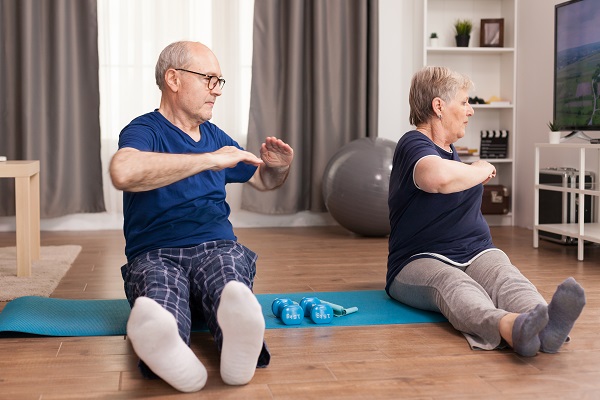Contents
8 Healthy Ways to Boost Your Energy
Coping with a perpetual sense of fatigue can be as frustrating as it is discouraging. You should take it as a sign that something needs to change if you’re constantly saying, “I’m tired”. Whether it’s existential exhaustion or your run of the mill lag from the daily grind, there are some things you can do to boost your energy throughout the day. Boosting your energy level is really only a matter of finding the method that works for you.
1. Avoid Burnout

Burnout is the inevitable crash of energy and interest that comes when you are overworked or stretching yourself too thin on obligations. If you think about it, there’s really only so much time you have each day and even fewer pieces of yourself that you can give away to attend to this or that obligation.
If you’re feeling burnout, you’re more likely to be less productive, have more irritation, and may even experience physical symptoms, such as headaches or body aches. And the worst thing about burnout? It can come back.
So, what can you do to avoid burn out? You might try:
-
- Prioritizing obligations
- Reducing work
- Scheduling self-care
- Take a day off
- Learn to say “No”
- Ask for help
2. Manage Stress

Managing stress is different from avoiding burnout. For one thing, there are certain types of stress that are unavoidable, such as taking care of dependents, paying bills, running errands, and going to work or school. For another, being stressed doesn’t necessarily mean you will be burned out.
In fact, stress has many noteworthy health implications. Overall, prolonged amounts of stress can be bad for your wellbeing. A recent study showed that stress is linked to cardiovascular disease, migraines, gastrointestinal issues, sleep disturbance, and loss of sexual interest. Chronic stress has even been linked to a higher likelihood of being more frequently ill.
Stress is inevitable, but that doesn’t mean you have to learn to live with an enormous amount of it! There are several ways you can manage stress, which may include:
-
- Mindfulness exercise
- Mental health days
- Meditation
- Breathing exercises
- Limit social media
- Avoiding work outside of work hours
- Peer support
3. Eat Complex Carbs

We know food gives us the energy – and the calories – we need to get through the day, but are there foods that can help increase energy? It turns out that the right diet can actually give you more energy. Aside from eating balanced meals throughout the day, you might consider incorporating more complex carbs into your diet.
According to Harvard Medical School, complex carbs take longer for the body to break down, which means the conversion of that food into energy lasts longer. Foods with complex carbs are usually unprocessed or unrefined, such as whole grains, nuts, beans, and fruits or vegetables that are high in fiber.
4. Try a 30-Minute Power Nap

The easiest way to boost your energy is to work in a quick nap during the day. A 30-minute power nap is kind of like resetting your energy levels, as these cat naps are instant boosts that can help you think more clearly and have better motor performance. 30-minute power naps are best in the afternoon, at least 1 hour before dinner.
5. Be Smart About Caffeine

Caffeine might be your obvious choice when it comes to boosting your energy, but the best way to get the most out of your caffeine intake is to be thoughtful about consumption. For example, consuming a large amount of caffeine in the morning might be hindering more than helping. Being smart about your caffeine intake means planning and regulating your consumption. Limit yourself to your morning cup and only one, early-afternoon pick-me-up, which is best taken at least 8 hours before your set sleep time.
6. Try Using B12

B12 is known as a natural energy booster that also helps ramp up your metabolism. Because B12 is a water-soluble vitamin, it’s generally safe for all people to take. However, you might not get a huge boost in energy unless you have some level of B12 deficiency. Still, trying out a daily sublingual B12 vitamin – or a multivitamin that includes B12 – might be worth a try.
7. Exercise Regularly

Regular exercise isn’t just good for the health of your body – it’s also good for relieving stress and helps you feel more energized. Why? Simply put, exercise circulates more oxygen through the body, releases feel-good, energy-boosting hormones like norepinephrine, and helps you get better sleep, all of which can lift your overall energy level during the day. Exercise also helps clear the mind!
As a general rule of thumb, 30 minutes of exercise a day, or 3 hours of exercise a week, is enough to qualify as regular exercise. Some exercises you might consider include:
-
- Brisk walking
- Dancing
- Jogging
- Yoga or pilates
- Tai Chi
- Bicycling
- Swimming
8. Drink Water

Finally, the simplest thing you can possibly do to boost your energy level is to drink water. Chronic dehydration – that is, not getting enough water you need every day – is one of the hallmarks of fatigue, as well as other health issues. The average adult should be drinking at least 48oz of water a day in addition to other beverages such as coffee, tea, juice, or sports drinks. While it might be tempting to write off a cup of coffee as being part of your daily water consumption, only plain water counts.
After reviewing research studies and the numerous resources at Harvard Medical School, it’s easy to see that there are plenty of healthy, natural methods for boosting your energy. From classic healthy lifestyle advice to exercise and eat well to more cognitive-centered approaches such as the avoidance of burnout for managing stress, you can find a way to top-up your energy levels. To learn more about healthy ways for boosting your energy level, keep up with Aging Healthy Today!


